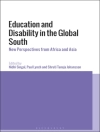The Politics of the Near offers a novel approach to social unrest in post-apartheid South Africa. Keeping the noise of demonstrations, barricades, and clashes with the police at a distance, this ethnography of a poor people’s movement traces individual commitments and the mainsprings of mobilization in the ordinary social and intimate life of activists, their relatives, and other township residents.
Tournadre’s approach picks up on aspects of activists lives that are often neglected in the study of social movements that help us better understand the dynamics of protest and the attachment of activists to their organization and its cause. What Tournadre calls a “politics of the near” takes shape, through sometimes innocuous actions and beyond the separation between public and domestic spheres.
By mapping the daily life of Black and low-income neighborhoods and the intimate domain where expectations and disappointments surface, The Politics of the Near offers a different perspective on the “rainbow nation”—a perspective more sensitive to the fact that, three decades after the end of apartheid, poverty and race are still as tightly interwoven as ever.
Зміст
Introduction | 1
1 A South African City | 27
2 The Sense of Community | 46
Interlude 1: Football, Community, and Politics | 71
3 “We Are the People Who Stay with Them in the Township” | 75
4 “My Blood Is Still Here, in UPM” | 102
Interlude 2: What Really Matters | 121
5 “It Is Moral to Rebel” | 129
6 “We Do Not Discuss Politics” | 148
7 Leaders in the Communities | 174
Interlude 3: Breakups | 194
8 Lost in Transition? | 199
9 The Community, the Movement, and the “Outside World” | 228
10 “Yes, We Do the Same Thing” | 246
Epilogue | 263
Acknowledgments | 269
Notes | 271
Works Cited | 287
Index | 307
Про автора
Jérôme Tournadre is a research fellow at the French National Center for Scientific Research (CNRS). He is the author of A Turbulent South Africa: Post-Apartheid Social Protest.












